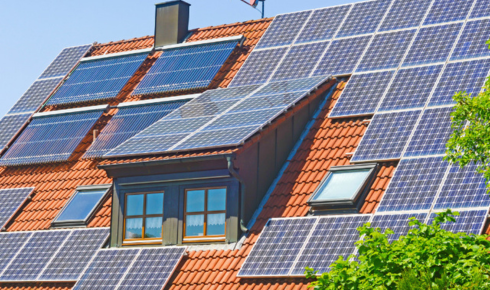The global shift toward renewable energy has made solar power one of the most reliable, cost-effective, and sustainable solutions for homes and businesses. As electricity demands rise and concerns over climate change grow, more people are choosing solar technology to reduce their dependence on conventional energy sources. Installing a solar power system not only lowers monthly utility bills but also contributes to a greener environment, offering long-term economic and ecological benefits.
Why Choose Solar Energy?
Solar energy harnesses the power of the sun and converts it into usable electricity. Unlike fossil fuels, solar power is abundant, renewable, and environmentally friendly. The sun provides enough energy in a single hour to meet global electricity needs for an entire year, making it one of the most powerful energy resources available. By investing in solar systems, individuals and businesses can enjoy clean energy while reducing their carbon footprint.
Some of the key advantages include:
- Reduced Energy Bills – Once installed, solar panels drastically cut electricity costs.
- Energy Independence – Solar users become less dependent on fluctuating utility rates.
- Government Incentives – Subsidies, tax credits, and net-metering policies make adoption easier.
- Sustainability – Solar is a long-term investment in the planet’s future.
Understanding Solar Power Systems
A solar power system typically consists of solar panels, inverters, mounting structures, wiring, and in some cases, batteries. The panels capture sunlight and convert it into direct current (DC) electricity. This electricity is then passed through an inverter, which converts it into alternating current (AC), suitable for household and industrial use.
Different types of solar systems are available, such as:
- On-Grid Systems – Connected to the utility grid, allowing users to export excess power.
- Off-Grid Systems – Equipped with batteries for areas without grid access.
- Hybrid Systems – Combining grid connection with battery storage for maximum reliability.
The choice depends on location, budget, and energy requirements.
Rise of Solar Rooftop Systems
With limited land availability in urban areas, the solar rooftop system has become extremely popular. This solution allows households, businesses, and institutions to utilize idle roof space for energy generation. Rooftop systems are cost-effective, easy to install, and require minimal maintenance.
In cities, where energy consumption is high and space is limited, rooftop installations are a practical choice. They help reduce the load on local electricity grids, lower bills, and provide reliable power backup when combined with battery storage.
Factors to Consider Before Installation
Before setting up a solar system, several factors should be evaluated:
- Roof Condition – The roof must be structurally sound to support solar panels.
- Sunlight Availability – Areas with maximum sunlight exposure ensure higher energy output.
- System Size – The number of panels depends on household or commercial electricity usage.
- Budget and Incentives – Initial investment varies, but subsidies and financial schemes reduce costs.
- Service Provider – Choosing an experienced and certified installer ensures long-lasting performance.
Environmental Impact
One of the biggest motivations for adopting solar is its positive environmental impact. By using solar energy, individuals can significantly reduce greenhouse gas emissions. A single household solar system can offset tons of carbon dioxide annually, equivalent to planting dozens of trees. Large-scale adoption can collectively fight climate change while promoting sustainable growth.
The Future of Solar Energy
As technology advances, solar panels are becoming more efficient, durable, and affordable. Governments worldwide are supporting solar adoption with favorable policies, and the demand for renewable energy continues to grow. Rooftop systems, in particular, are expected to dominate residential and commercial spaces due to their practicality.
Conclusion
Solar energy is no longer a futuristic option but a present-day necessity. Installing solar systems ensures financial savings, reliable power supply, and a commitment to protecting the environment. Whether through large ground-mounted projects or compact rooftop installations, the adoption of solar energy is reshaping how the world consumes electricity. For individuals and businesses alike, switching to solar is a smart step toward a sustainable and energy-secure future.

